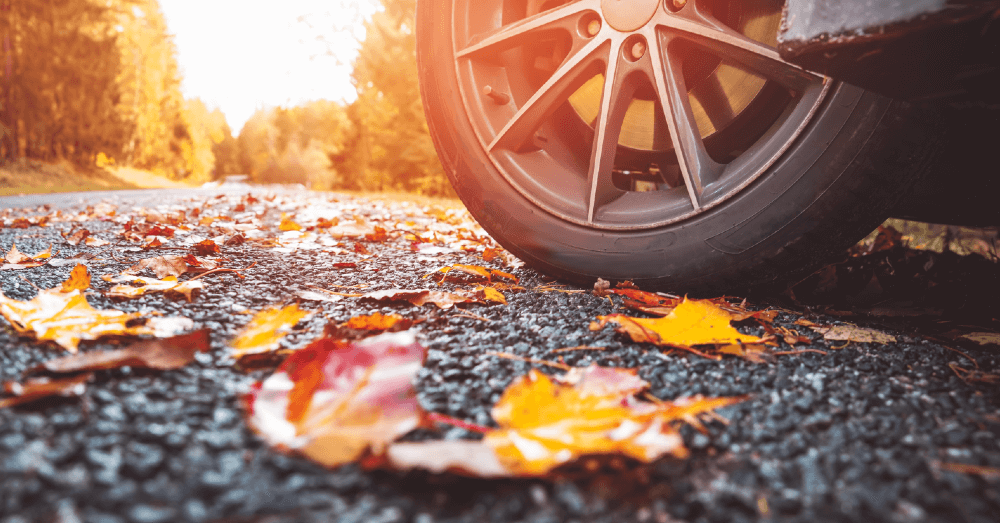What happens when the fall weather arrives? Typically, the temperatures begin to drop, which can have a negative impact on your vehicle’s fuel efficiency.
Depending on where you live, the temperatures can significantly drop in the fall compared to the summer heat. These colder temperatures can significantly impact your fuel efficiency figures, by dropping them as much as 33% depending on the type o driving you do. This decrease is even more significant for hybrids and electric vehicles. If your area has a sudden cold snap with wintry precipitation and temperatures, your fuel mileage will decrease even more.
Is it the temperature or the precipitation?
Although rain and snow can have an impact on how fast you can safely drive when they are falling to the ground, precipitation has a negligible impact on fuel mileage; the colder temperatures have a greater impact. When the temperatures drop, the air is denser, which means more fuel is mixed with this heavier air in your engine, causing your fuel mileage to decrease, especially on short drives around town.
Are you causing lower efficiency because of the fall weather?
The fall weather and colder temperatures mean you’re likely using the heating system in your vehicle. This system requires more energy, which comes from the engine. This will reduce the fuel mileage in your vehicle. If you drive an electric vehicle, use the heating system to warm up your vehicle. Thankfully, EVs have a fix for this. You can precondition the battery and keep the vehicle plugged in while warming it up to the desired temperature. This helps protect some of the EV’s driving range, but colder weather can cause you to use your heater, which lowers your vehicle’s fuel efficiency.
Longer time to reach most fuel-efficient temperature
When you vehicle has to start from a lower temperature, the engine oil is colder and it takes a little longer for the engine to reach the most fuel-efficient temperature. This Most short trips aren’t long enough to allow your vehicle to reach the optimal driving temperature, which means it never becomes as efficient as it could be. This longer warming time means your car is much less efficient than it should be.
Does fall weather impact your tires?
As the temperatures drop, so does the air pressure in your tires. This increases the rolling resistance, which lowers your fuel mileage. Your tires have a significant impact on the overall fuel efficiency experienced while driving. If the temperature drops significantly, your tires could become too low to drive safely. When you experience these colder temperatures, it’s important to take the time to check your tires before heading out for the day. This isn’t simply an efficiency issue, it’s also a safety issue.
Late-season fuel has less energy per gallon
You might not notice the decrease in your vehicle’s fuel efficiency from one tank of winter gas, but throughout the season, it will show up. Winter gasoline has slightly less energy per gallon than summer blends. This can cause a decrease in your fuel economy numbers, which means you’ll get less out of each tank of gas than if it were the summer blends of gasoline.
Does fall weather impact your battery?
It’s a common sight to see a person stranded in a parking lot because their battery died. Unfortunately, this seems to happen late at night. Fall weather decreases battery performance which impacts your vehicle’s fuel efficiency. The alternator has to work harder to keep the battery charged, which increases the use of fuel while driving. The lowered battery performance also affects the regenerative braking system of hybrids, plug-in hybrids, and EVs.
Are there other factors that decrease your fuel efficiency?
Environmental factors have a significant impact on your fuel mileage, but there are many things you can do to protect your fuel mileage figures. Some of these are:
- Lightening the load
- Removing any external items, such as luggage carriers
- Ensure the vehicle is up to date in terms of maintenance
- Park in a warmer place, such as a garage
- Combine trips whenever possible
- Minimize idling to warm up the car
- Don’t use seat warmers or defrosters more than necessary
You can’t do anything about the fall weather causing your vehicle’s fuel efficiency to drop, but you can help minimize the loss by using some of these tips to keep your vehicle running at its most efficient. Keep your car going strong and protect your fuel mileage during the fall and winter.
This post may contain affiliate links. Meaning a commission is given should you decide to make a purchase through these links, at no cost to you. All products shown are researched and tested to give an accurate review for you.

